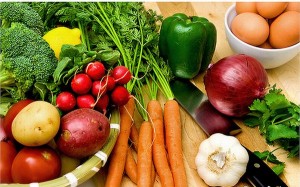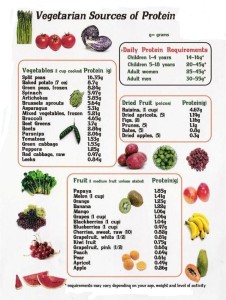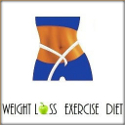-
An Easy-to-Follow Vegetarian Nutrition Guide
Thursday, November 6th, 2025by Paula Campbell, Nutritionist
These days, it seems more and more people are electing not to eat meat, fish, or poultry. There are a variety of factors that compel people to switch to a diet free of animal products, including health and ethical considerations.
If you have made the decision to practice vegetarianism, be sure you are eating a balanced and healthy diet. It’s important to have a good understanding of vegetarian nutrition, because if aren’t consuming the right type of vegetarian meals, a variety of health problems can result.
Vegetarian Nutrition Basics
 A healthy vegetarian diet should include a wide variety of fresh fruits and vegetables including leafy greens, tree-ripened fruits, as well as whole grain products, seeds, nuts and legumes. Some vegetarians may decide to include eggs and dairy in their diet, as these are good sources of fat and protein.
A healthy vegetarian diet should include a wide variety of fresh fruits and vegetables including leafy greens, tree-ripened fruits, as well as whole grain products, seeds, nuts and legumes. Some vegetarians may decide to include eggs and dairy in their diet, as these are good sources of fat and protein.Keep in mind that serious nutritional shortages can occur if not enough priority is given to making proper vegetarian food choices. Fortunately, diet plans for vegetarians can be designed for individuals of any age, provided there is enough variety in the meals consumed.
Types of Vegetarians
Vegetarianism falls into several categories, depending on how strictly a person chooses to adhere to a vegetables-only eating plan. For example, lacto-ovo-vegetarians do not eat beef, pork, poultry, fish, shellfish or animal flesh of any kind, but do eat eggs and dairy products.
A lacto-vegetarian is a vegetarian who does not eat eggs, but does eat dairy products. Ovo-vegetarians are individuals who do not eat meat or dairy products but do eat eggs. Vegans are people who do not eat meat of any kind and also do not eat eggs, dairy products, or processed foods containing ingredients derived from animals (such as gelatin).
Getting Enough Vitamins and Minerals from a Vegetarian Diet
A vegetarian diet is almost always healthier than a diet based on animal products. The best vegetarian diets are low calorie and cholesterol-free, as well as being low in saturated fat and high in fiber, complex carbohydrates, and cancer-fighting antioxidants.
The health benefits of the vegan lifestyle include a trimmer waistline, normal blood pressure, abundant energy, and a reduced risk of developing heart disease, diabetes, and certain types of cancers. A vegetarian diet includes fruits, vegetables, beans, whole grains, and other wholesome plant-based foods.
No matter what your age, protein is vital to remaining in good health. If a person’s diet is lacking in protein, energy reserves become low and a variety of health problems can occur.
 Protein contains essential amino acids, which are needed to protect the body from a variety of health problems. If you choose not to consume eggs or dairy, you can still get a sufficient amount of protein from breads, nuts, cereals, beans, tofu and soy milk.
Protein contains essential amino acids, which are needed to protect the body from a variety of health problems. If you choose not to consume eggs or dairy, you can still get a sufficient amount of protein from breads, nuts, cereals, beans, tofu and soy milk. Almost every food contains protein, so it’s virtually impossible not to get enough protein if you’re consuming a sufficient number of calories.
Soybeans, for example, are packed with protein and essential amino acids. Other foods like lentils, nuts, seeds, mushrooms, broccoli, walnuts, whole-wheat bread, oatmeal, and corn are also good sources of protein.
Another important part of your diet is calcium. Although most people get calcium from milk and cheese, it is also found in tofu, soy milk, and certain leafy green vegetables like kale, broccoli and bok choy. Without sufficient calcium, bones can weaken, hair becomes brittle and fingernail and toenail growth may slow.
Omega-3 fatty acids are essential for heart, brain, skin, and joint health. Flaxseed, walnuts, and canola oil are good vegan sources of omega-3s.
Iron is another key nutrient essential for good health. In terms of vegetarian nutrition, iron can be found in foods such as broccoli, tomatoes, spinach, raisins, molasses, and many beans and peas. Anemia resulting from lack of iron can be a potentially serious health problem for some vegetarians, and avocado nutrition can help.
Spinach is rich in iron to help build strong muscles. Other iron-rich foods include beans, black-eyed peas, lentils, chickpeas, oatmeal, dried fruits, nuts, sunflower seeds, molasses, and grains such as millet and quinoa.
Vitamin C helps increase iron absorption, so for optimal health benefits, consume foods that are rich in both nutrients, such as dark-green, leafy vegetables.
Many health experts encourage vegetarians to take a multivitamin to get sufficient amounts of vitamin B12. It can also found in some supermarket cereals, as well as fortified soy or rice milk.
Sunshine is one of the best sources of vitamin D. Most of the time your skin should manufacture enough of this vitamin if your face and forearms are exposed without sunscreen to midday sunlight for around 20 minutes a day.
Many brands of soy or rick milk contain calcium and vitamin D, as do some brands of fortified orange juice. If you aren’t getting enough sun exposure on a daily basis, you may want to add these foods to your diet.
Vegetarian Snacks
Another common complaint that vegetarians have is that they feel hungry between meals. Fortunately, there are a variety of healthy vegetarian snacks to stave off hunger cravings. Delicious snacks for vegetarians include popcorn, dried fruit, rice cakes and raw carrots.
Adopting a meat-free lifestyle can lead to better health in a relatively short period of time. If proper vegetarian nutrition is followed, you should begin feeling more energetic and alert, and may also lose weight in the process!
(published July 15, 2011)


